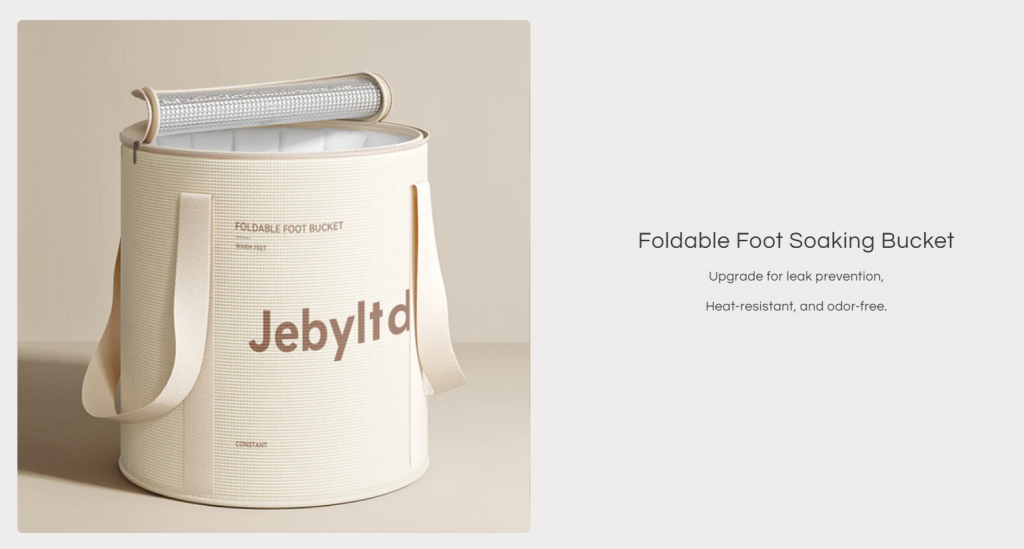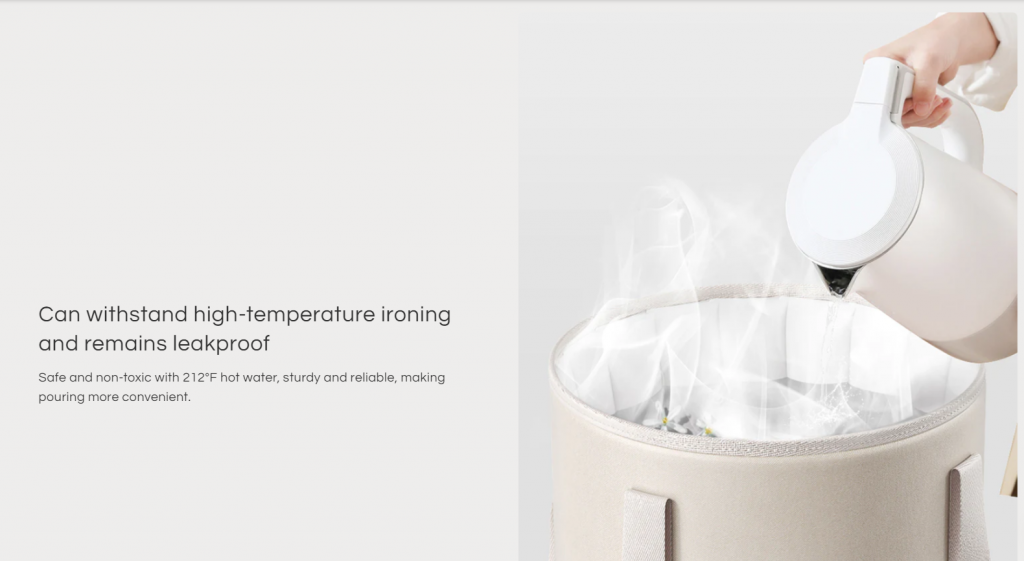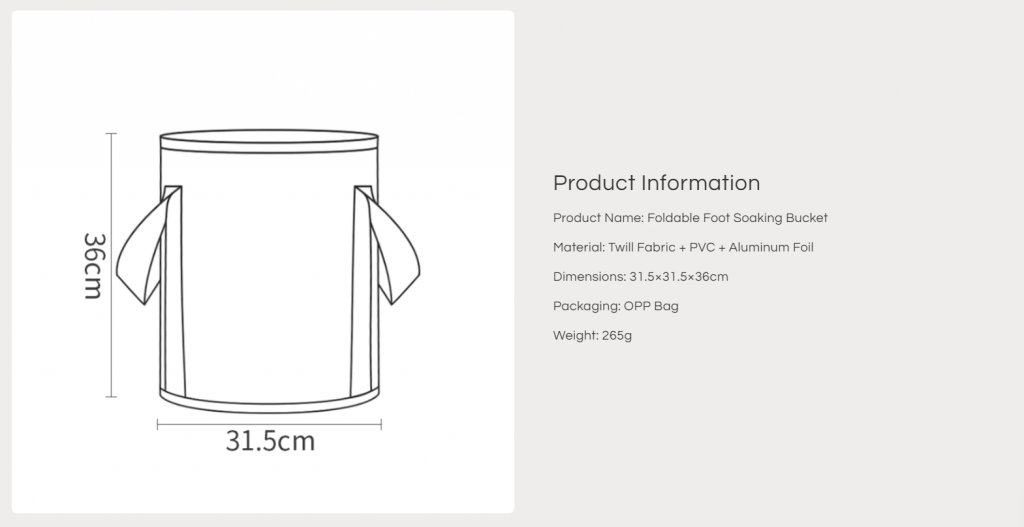Does a foot bath help you sleep?
Does a foot bath help you sleep?
Most of the insomnia phenomenon is due to dysfunction of the five human organs caused by the human body, and the human foot acupuncture points, these points and the human body has a close connection with the five viscera and six bowels, soak your feet before going to bed to promote the foot acupuncture points of the qi and blood running, relieve the feet of the muscle tension, thus to a certain extent, to promote the human body’s blood circulation, to eliminate the body’s fatigue, and to activate the tendons, so that the human body yin and yang and balance, and thus have to help the human body to sleep!


Dipping your feet in warm water, particularly before bedtime, can offer several potential sleep benefits. Here are ways in which this practice may contribute to better sleep:
1.Relaxation
The warm water helps to relax the muscles and joints in your feet. This relaxation can extend to the rest of your body, promoting an overall sense of calm and reducing tension.
2. Stress Reduction
A foot soak before bedtime can be a simple yet effective way to unwind and alleviate stress. The calming effect may help you transition from a busy day to a more relaxed state conducive to sleep.
3. Improved Circulation
Warm water can enhance blood circulation in the feet and lower legs. Improved circulation is generally beneficial for overall vascular health and can contribute to a feeling of warmth and comfort.
4. Body Temperature Regulation
A warm foot bath can increase blood flow to the extremities. As you exit the foot bath, your feet cool down, and this process can aid in the body’s natural cooling mechanisms, which is important for falling asleep. A drop in body temperature is often associated with the onset of sleep.
5. Mindful Ritual
Establishing a bedtime routine, such as a foot bath, can serve as a calming and predictable pre-sleep ritual. The consistency of a routine can signal to your body that it’s time to wind down and prepare for sleep.
6. Enhanced Sleep Quality
For some individuals, the relaxation and body temperature regulation provided by a foot soak can contribute to better sleep quality. Quality sleep is crucial for overall health and well-being.
7.Release of Endorphins
Warm water can stimulate the release of endorphins, which are the body’s natural feel-good hormones. This release can create a sense of well-being and relaxation.
8.Aromatherapy Effects
Adding essential oils or aromatic salts to the foot bath can enhance the relaxation experience. Certain scents, like lavender or chamomile, are known for their calming properties and can positively impact your mood.
9.Reduction of Discomfort
If you experience discomfort in your feet, whether from standing for long periods or wearing tight shoes, a foot soak can alleviate pain and discomfort. By addressing physical discomfort, you create conditions more conducive to restful sleep.
10. Moisturization
Soaking your feet in warm water can hydrate and soften the skin. Following the foot bath with the application of a moisturizer helps lock in moisture, preventing dryness and promoting overall foot health.
11. Maintenance of Foot Health
Regular foot baths can contribute to the overall health of your feet by addressing common issues, preventing dry skin, and promoting good hygiene practices.
How often should you use a foot bath?
The frequency of foot baths depends on individual preferences, lifestyle, and any existing health conditions. Here are some general guidelines:
1.Daily
Some people find benefit in incorporating a foot bath into their daily routine, especially if they spend a significant amount of time on their feet or experience foot discomfort. A daily foot bath with warm water and added ingredients like Epsom salts or essential oils can be a relaxing and soothing practice.
2. Several Times a Week
If daily foot baths are not practical, having a foot bath several times a week can still provide benefits. This frequency may be suitable for those looking to maintain foot hygiene, reduce stress, or alleviate mild foot discomfort.
3. As Needed
Others may choose to use a foot bath on an as-needed basis. For example, after a long day or following physical activities that put strain on the feet, a foot soak can provide relief and promote relaxation.
4. With Specific Treatments
Some individuals may use foot baths as part of specific treatments, such as addressing dry or cracked skin, fungal infections, or other foot conditions. In these cases, the frequency may be determined by the treatment plan recommended by a healthcare professional.
5. Considering Health Conditions
Individuals with certain health conditions, such as diabetes, should exercise caution with foot baths. Consult with a healthcare provider to determine a safe and suitable frequency based on individual health considerations.
It’s essential to pay attention to how your feet respond to foot baths. If you notice any adverse effects, such as excessive dryness or irritation, consider adjusting the frequency or ingredients used in the foot bath. Additionally, always check your feet for any signs of injury or infection before soaking.


Those people are not suitable for foot soaking
Soaking feet can dispel cold, promote metabolism, and facilitate sleep, but it is not suitable for some people.
1.People with heart disease
For people with heart disease, especially those who have symptoms of heart disease or are undergoing treatment, need to be careful when soaking feet. Hot water may increase the burden on the heart, so it is best to consult a doctor’s advice.
2. People with high blood pressure
Hot water foot baths can cause blood vessels to dilate, leading to an increase in blood pressure. People with high blood pressure should be advised by their doctor to soak their feet, or choose a milder water temperature.
3. Diabetic patients
Diabetic patients need to be extra careful when soaking their feet, as it may diminish the perception of pain and temperature changes in the feet, increasing the risk of injury. Most diabetic patients have varying degrees of foot neuropathy and lower extremity vasculopathy, and are not sensitive to temperature, it is easy to be scalded by hot water, so soak your feet in the water at 37 ℃ is appropriate, if you can not judge the temperature of the water, you can let your family to help try, or use a water thermometer to measure it. Foot soaking time should also be controlled, it is recommended that each foot soak no more than 15 minutes.
4. Skin infections or open wounds
If you have skin infections, eczema, ulcers or other open wounds on your feet, it’s best to avoid soaking your feet to avoid aggravating the infection.
5. Early pregnancy
Pregnant women may be more sensitive during the early stages of pregnancy, especially in terms of vomiting and thermoregulation, so it is best to consult your doctor’s advice before using hot water for foot soaking.
6. Colds or fever
If you feel feverish or have symptoms of fever, it is best to avoid using hot water to soak your feet to avoid increasing your body temperature.
So, how to carry out foot soaking with hot water before bedtime?
- prepare a footbath and add an appropriate amount of hot water. The temperature of the water does not have to be too high, and it is best to control it at about 40 degrees Celsius.
- if you like, you can add some lavender aromatherapy and so on to increase the effect.
- the time of foot soaking is best controlled in about 15-20 minutes, and you can massage the acupoints in the process of foot soaking, which can better promote blood circulation.
- At the end of the foot soak, dry your feet and apply some moisturizing skin cream to keep your skin moisturized.
Other considerations for foot soaking
Healthy people to develop the habit of foot soaking, indeed has certain health benefits, but also to pay attention to the scientific method.
Control the water temperature and time is the key
The temperature should not be too high. Water temperature is too high, not only for patients with cardiovascular and cerebrovascular disease is not favorable, and easy to destroy the sebaceous membrane on the surface of the skin of the feet, so that the stratum corneum is dry and even cracked. Water temperature of 40 ℃ ~ 45 ℃ is appropriate. You can try with your hands first, and diabetics can use a thermometer to make measurements for insurance purposes.
Do not take too long. It is best not to soak your feet for more than half an hour at a time, because the body’s blood circulation and heart rate will accelerate when soaking your feet, and too long a time will increase the burden on the heart.
Shop the story














